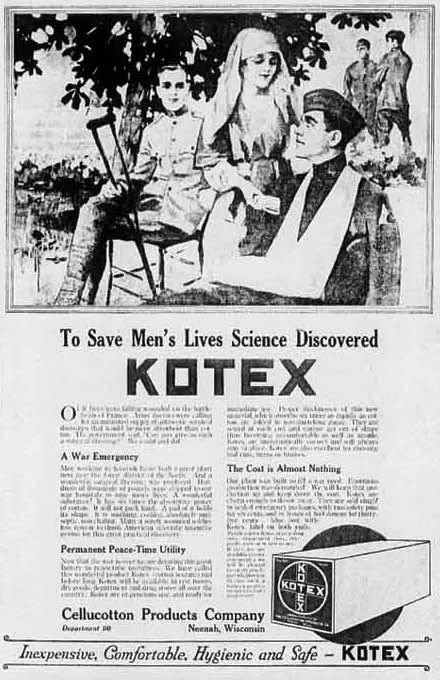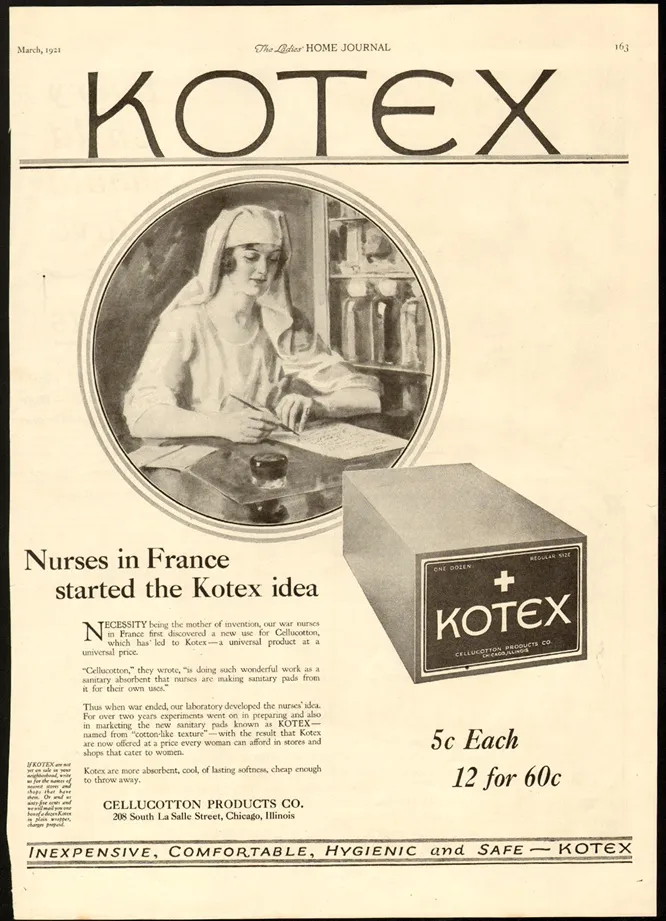Military inventions often go on to live a civilian life. For example, the internet developed out of a Department of Defense project, as well as GPS systems. Major wars often seem to accelerate the pace of technology as well, as armies try to find new ways to keep their soldiers alive and comfortable, and seek new advantages to use against the enemy. WWII, for example, saw the invention of radar, jet engines, pressurized airplane cabins, synthetic oil and rubber, instant coffee, the earliest computers, the cruise missile, helicopters, and even the VW Beetle and Willys Jeep. WWI saw some inventions as well. Many, like tanks and flamethrowers, were purely military, but some saw civilian use as well.

Ad for Kotex. Notice the description of its origins. Photo Credit: Museum of Menstruation
One of the major war supplies new to WWI was a new type of padding for dressing wounds and stopping bleeding after surgery, called Cellucotton. French nurses realized it would work well to absorb menstruation bleeding too, and soon American nurses adopted this practice. After the war, maker, Kimberly-Clark, used Cellucotton to create Kotex pads specifically for this purpose. However, they faced challenges in actually selling it to women, as many didn’t want to buy them from male sales associates. Kimberly-Clark initially suggested putting money into boxes to fix this problem, but they hit true success after convincing Montgomery Ward to sell it in their catalog.

Another ad for Kotex. Photo Credit: wjm2234.com
Stay tuned for another WWI invention that makes modern air travel safe.
Sources: Stephen Evans, “10 Inventions That Owe Their Success to World War One,” BBC News, April 13, 2014, sec. Magazine, http://www.bbc.com/news/magazine-26935867; “12 Technological Advancements of World War I,” April 30, 2017, http://mentalfloss.com/article/31882/12-technological-advancements-world-war-i; “First Kotex Ad Campaign at MUM,” accessed January 31, 2018, http://www.mum.org/urkotex.htm.
100% of the SBD rewards from this #explore1918 post will support the Philadelphia History Initiative @phillyhistory. This crypto-experiment conducted by graduate courses at Temple University's Center for Public History and MLA Program, is exploring history and empowering education. Click here to learn more.